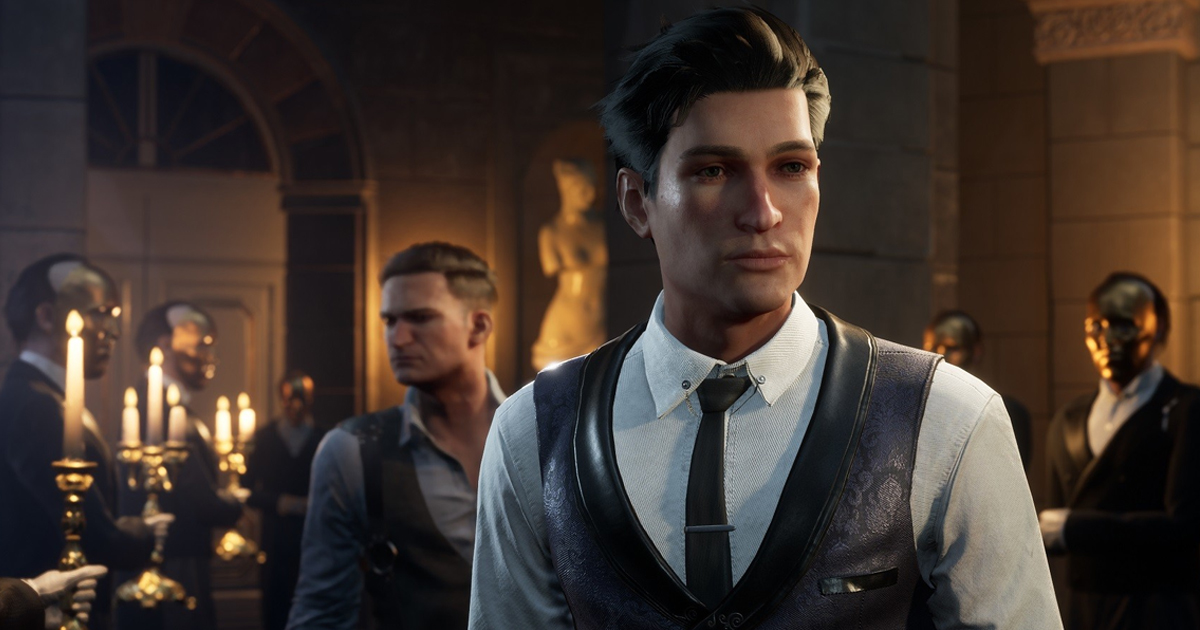The problem of mentioning studio employees in the credits periodically causes great discussions in the professional environment. From the latter, we can recall the case with the release of Sherlock Holmes: Chapter One, when Frogwares studio initially forgot to mention a number of former developers. We talked to several representatives of the gaming industry about how common this practice is and how to deal with it.
Sherlock Holmes: Chapter One
To begin with, briefly recall the situation around Frogwares. Shortly after the release of Sherlock Holmes: Chapter One, the former leading narrative designer of the studio, Sergey Ten, spoke about the absence of some employees in the credits. All of them left the studio before the release of the game, but managed to contribute to its development.
The situation has caused a lot of discussion in professional circles. However, Frogwares promptly promised to fix the error. In conversation with App2Top.ru CEO and founder of the studio Waël Amr stressed that this happened by accident, and the names of former developers will be added to the credits in the next patch.
“Frogwares does not have a policy that involves excluding former employees from the credits. We are grateful to everyone who worked on our games, regardless of whether they are employees of the company or have already left it,” Amr said.
Despite the positive ending of the story with Sherlock Holmes: Chapter One, a lot of developers at least once in their careers have faced the absence of their names in the credits. This happens for a variety of reasons.
About your experience and attitude to this problem App2Top.ru told:
- Tatiana Vetrova is an artist who collaborates with game studios on a freelance basis (previously she worked for seven years as a senior 2D artist at Sperasoft);
- Mikhail Kotov — composer, sound designer, and CEO of Principle Sound Design studio;
- Zhanna Goranskaya — Business Development Lead at Saber Interactive.
How often are developers not included in the credits?
Tatiana Vetrova admits that she has worked on many projects during her career, but can count on the fingers of one hand those in which her name was indicated in the credits.
According to her, employees of outsourcing studios most often face such a problem. The titles of the game often indicate just the name of the company without the names of individual developers. “This depresses me, and I believe that any outsourcing studio should fight to the last for mentioning employees in the credits,” Vetrova notes.
As a positive example, she recalls working on Halo Infinite. According to Vetrova, the company can always mention freelancers in the acknowledgements section. This is a good compromise that will suit both sides.
concept artist
Mikhail Kotov had an unpleasant experience at the beginning of his career. In 2010, he worked as a composer on the game Deep Black. Despite the fact that Kotov wrote all the music for the project, Biart studio did not mention him in the credits.
“At the old DTF, we recruited a huge number of abandoned employees who were threatened and towards whom the management behaved unworthily. At first they didn’t pay, then they forgot to indicate half of the company in the credits,” recalls Kotov.
According to him, now there is almost no such practice in the industry. There are rare exceptions, including those related to technical limitations (for example, the lack of titles in a mobile game). However, the Principle Sound Design studio has practically not encountered such moments in more than 10 years of its activity.
CEO Principle Sound Design
Zhanna Goranskaya notes that in the gaming industry there are still no uniform rules for mentioning developers in the credits. Each studio may have its own policy regarding this issue.
According to Goranskaya, for developers, having their name in the credits is an important part of the recognition of merit. If we talk specifically about Saber, then the studio always tries to indicate everyone involved in the creation of the project. Although mistakes sometimes happen.
Business Development Lead in Saber Interactive
Is it correct to evaluate the developer’s contribution based on the time spent on the project?
Recently, one of the most resonant cases of this practice has been the scandal surrounding Metroid Dread. In October, a number of former developers told the Spanish publication Vandal that they were surprised by the absence of their names in the credits.
Despite the fact that many of them have been working on the game for several months, MercurySteam studio decided not to celebrate their contribution to the development. Later, the company explained this by its internal policy. The credits may include employees who worked on the project for at least 25% of the total development time.
According to Mikhail Kotov, the situation around Metroid Dread “does not fit into any logic.” He noted that after such statements, developers will be much less willing to go to work in such a studio.
CEO Principle Sound Design
Tatiana Vetrova does not fully agree with such a position. She notes that the mention of an employee in the credits may indeed depend on his contribution to the game. At the same time, it is not necessary to work in the studio until the release.
concept artist
Should studios mention everyone involved in the creation of the game, regardless of their position and reasons for leaving the company?
According to Vetrova, a lot can really depend on the circumstances of the departure of a particular employee from the studio. Perhaps the person was “kicked out in disgrace”, or his dismissal was connected with a scandal.
Despite this, she believes that companies should still indicate all those involved. Alternatively, you can divide the titles into the main team and a special section for general thanks.
Kotov is also sure that game studios should adhere to the practice of mandatory indication of developers in the credits. “Those who don’t are stuck in their development. We do not touch on the legal side, on which the company really can not specify anyone. It’s just humanly and with respect for its employees,” he emphasizes.
Zhanna Goranskaya also notes that each studio has the right to decide for itself how to act in such a situation. The whole point is in the absence of a single industry standard on this issue.


